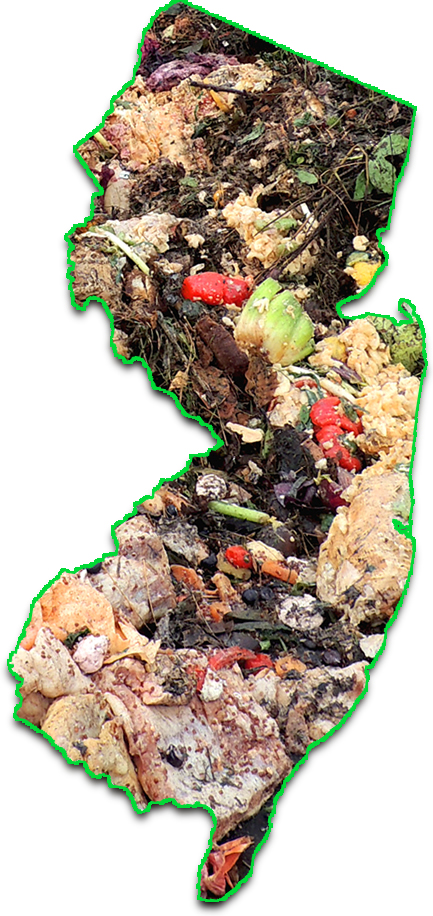Nora Goldstein
New Jersey legislators and Gov. Phil Murphy have been working on a food waste recycling bill for quite a while. It didn’t get passed during a lame duck session in late December/early January, so was reintroduced in the current session as A2371/S865. The State Assembly passed the legislation, which now faces a vote in the Senate scheduled for March 5. “We are encouraged by the fact that very little has been changed in the legislation from the version going through the lame duck session,” says Jairo Gonzalez, president and trustee of the New Jersey Composting Council (NJCC).
- S865 would require recycling of food waste by “large food waste generators” (i.e., certain commercial and institutional entities that produce at least 52 tons/year of preconsumer food waste). To protect businesses from excess costs as a result of this requirement, large food waste generators are required to comply with the mandate only:
- If the large food waste generator is located within 25 miles of an authorized food waste recycling facility with sufficient capacity to accept the waste; and
If the cost of recycling food waste is less than 10% more than the cost of disposing of the waste through traditional means, provided, however, that the large food waste generator would have to petition the New Jersey Department of Environmental Protection for a waiver from the recycling requirement on this ground.
S865 also contains a number of other provisions that would provide much needed support to the market for products and energy generated by food waste recycling in New Jersey. Specifically, these other provisions would:
- Create a Food Waste Recycling Market Development Council to provide recommendations on how to increase demand for products and energy generated by food waste recycling facilities;
- Require state departments or agencies that engage in landscaping or construction to use compost, mulch or other soil amendments generated from recycling of organic materials where competitively priced and feasible; and
- Provide a financial incentive for energy generated at a food waste recycling facility by giving the facility a “class I renewable energy certificate” which in turn can be sold on an open market or to energy suppliers and can be used by energy suppliers to meet renewable energy portfolio requirements.

New Jersey Assembly committee hearing on food waste recycling legislation
Current Issues To Address
Gonzalez notes that while the Assembly overwhelmingly passed the legislation (49-28) on February 24 , two members of the assembly did get up to object.
“Those objections, as well as ones voiced by a lobbyist during a Committee hearing, have not made it into the Senate bill language to this point,” says Gonzalez.
“We are guiding our members and other stakeholders in favor of the legislation on how to address these objections being voiced to state senators.”
The objections and suggested responses include:
- There is not a need A2371/S865 and instead the focus should be on reducing and donating food waste rather than recycling and composting it. “While we agree that reducing and donating food waste is essential, we can do both — and there already are several pieces of legislation that passed last year to support food waste reduction and donation,” states NJCC. “No matter how good we are at reducing food waste there will always be residuals that require recycling.”
- An age-old argument is being made that landfills are doing a great job capturing the methane that results from landfilled food waste, but this is not really accurate. While gas capture systems are important, most of the methane generated by decomposing food waste is emitted before the cell is capped and the biogas is recovered. “Nor,” adds NJCC, “are they creating a resource like compost!”
- A third objection, says the Council, is “there will be negative economic repercussions for landfills or counties. While we disagree with that assessment, it also ignores the new sustainable investment and green employment opportunities.”
Gonzalez emphasizes “the time has come for this legislation to be passed,” and encourages NJCC members and others to “call your senator today and urge them to support A2371/S865. Tell them you don’t accept anything less than recycling of our organics! Tell them you support generating truly clean energy, amending and rehabilitating our soils, and keeping methane, a powerful greenhouse gas, out of the environment.”










